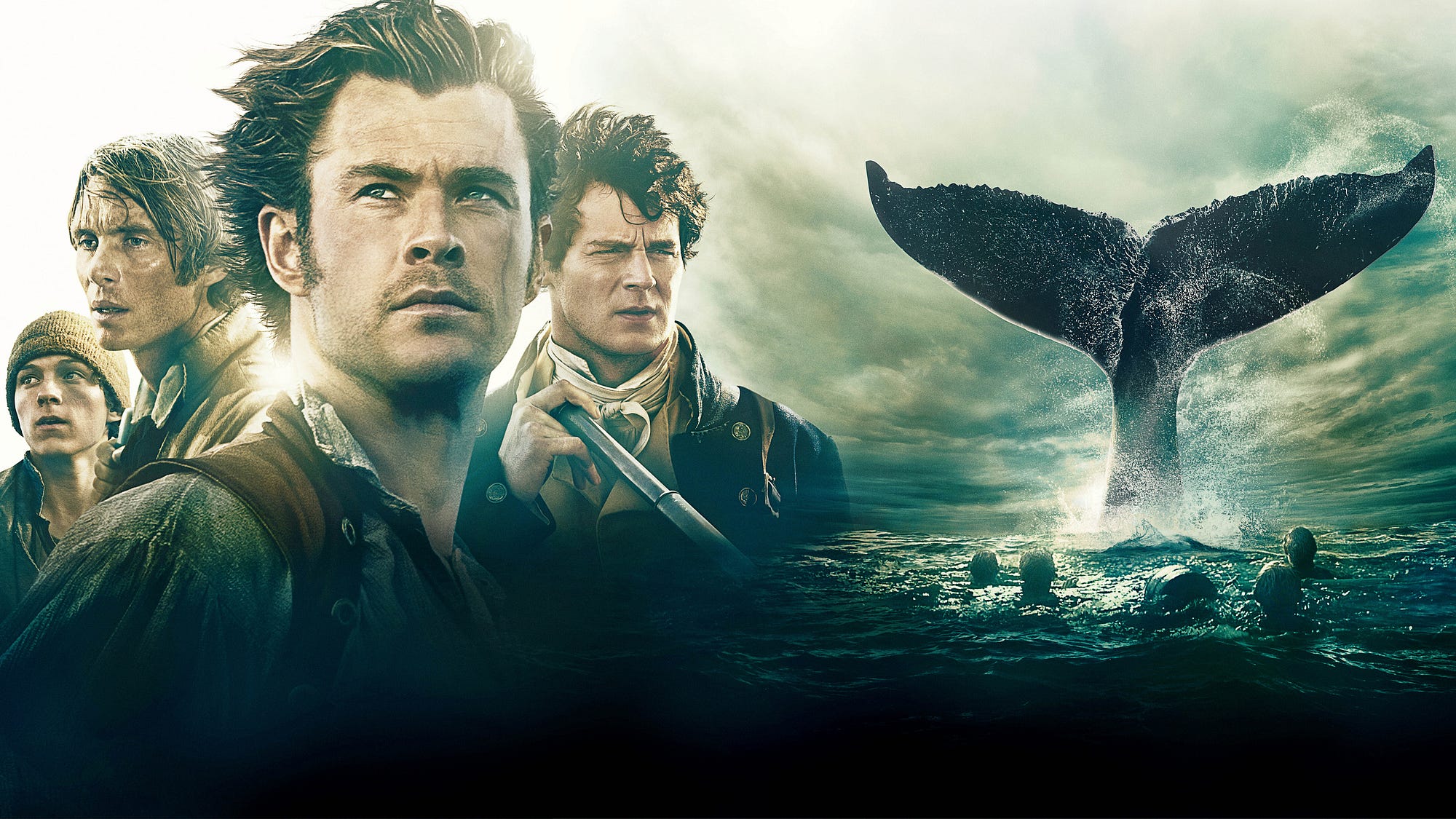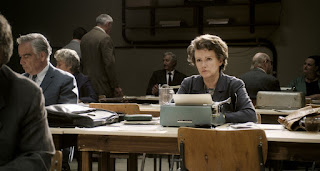A Familiar Story Resurrected from the Depths of True Darkness
Originally published in December 2015.
IN THE HEART OF THE SEA: A FAMILIAR STORY RESURRECTED FROM THE DEPTHS OF TRUE DARKNESS
A whaler once himself, Melville was drawn to the seemingly inconceivable story of a ship and its crew hunted down by a monstrous white whale. In the historical reality that inspired Melville, there was no peg-legged Captain Ahab nor an Ishmael. In that glorious division between real reality and imaginative reality, fact is relative. Truth runs through the ink of the writer or, in present day, the keystrokes of the artist.
Moby Dick is indeed a work of fiction. However the lessons of the historical reality behind the legend ring true: man's subordination to the power of nature, man's growing insanity in the pursuit of unnecessary exploit, and the destruction of humanity in pursuit of not material wealth but material greed. I admitted at the beginning that I never read the actual book, but I never said I was unfamiliar with the story.
In 1850, Melville finished writing Moby Dick, which was published in 1851. Hawthorne likened Melville's work to that of the Greek poet Homer. What great things we humans can do when we raise our anchors, disengage from the docks, and set out into the glorious darkness and mysterious depths of the sea. From a writer's point of view, I can tell you that it will bring you to the edge of sanity, hell and back, leaving you to question what humanity is But I also can tell you that that journey is the purpose of our existence.

It's time I stopped procrastinating due to any similar fears that Melville had of his own writing. It's time to raise anchor, disengage from the dock, and set out into the depths, into the heart of the sea.
~Michael DeNobile
IN THE HEART OF THE SEA: A FAMILIAR STORY RESURRECTED FROM THE DEPTHS OF TRUE DARKNESS
I must admit I never read Herman Melville's Moby Dick, heck not even the abridged version but near excerpts of the grand epic. Truth be told, though I'm an English teacher, I prefer writing to reading. A few years ago when I contemplated earning my second masters degree, I started in Hunter College in Manhattan to pursue a degree in literature, but after a semester I realized I didn't like studying other people's work. I wasn't a spectator but an actor. Not the receiver of magic but the magician. So very quickly I found myself wandering the halls of Manhattanville College earning an MFA in creative writing.
With that in mind, I have always been fond of the image of a storm at sea. The vastness of this earth we live on is majority water, and that of the salty kind. The life of the writer is very much a life at sea, spending most of on e's time adrift, finding one's voice and hoping against hope not to be shipwrecked. The greatest fear of a writer is being discovered that one is not as great as one believes one to be. And so the writer sets sail, over the depths, in search of the one thing necessary for one's survival.
For the men of the Essex of Nantucket, their survival was whale oil. Archaic to us civilized people of the 21st century, in the days before electricity, man relied on a special kind of oil to bring light out of the darkness of our nights, the sea of darkness in which we dwelt in after each sunset. The sea was not for women--it is where man set out for months or even years on end in the chaos and blackness of the unknown with hopes of returning. It's where young boys went to become men, long before the days of our understanding of what we lose when we hunt beautiful creatures nearly to extinction.
It's where a young writer went in search of one of the greatest stories to ever be penned in American literature. The dream of a writer is to be acknowledged for the story he wishes to bring to the world, and nothing is worse than living in the shadow of a contemporary writer. For Melville, living within the first century of America's founding, his standard bearer was Nathaniel Hawthorne, best known for his American mythology of "Young Goodman Brown," "the Minister's Black Veil," and the Scarlet Letter.
A whaler once himself, Melville was drawn to the seemingly inconceivable story of a ship and its crew hunted down by a monstrous white whale. In the historical reality that inspired Melville, there was no peg-legged Captain Ahab nor an Ishmael. In that glorious division between real reality and imaginative reality, fact is relative. Truth runs through the ink of the writer or, in present day, the keystrokes of the artist.
Moby Dick is indeed a work of fiction. However the lessons of the historical reality behind the legend ring true: man's subordination to the power of nature, man's growing insanity in the pursuit of unnecessary exploit, and the destruction of humanity in pursuit of not material wealth but material greed. I admitted at the beginning that I never read the actual book, but I never said I was unfamiliar with the story.
In 1850, Melville finished writing Moby Dick, which was published in 1851. Hawthorne likened Melville's work to that of the Greek poet Homer. What great things we humans can do when we raise our anchors, disengage from the docks, and set out into the glorious darkness and mysterious depths of the sea. From a writer's point of view, I can tell you that it will bring you to the edge of sanity, hell and back, leaving you to question what humanity is But I also can tell you that that journey is the purpose of our existence.

It's time I stopped procrastinating due to any similar fears that Melville had of his own writing. It's time to raise anchor, disengage from the dock, and set out into the depths, into the heart of the sea.
~Michael DeNobile


Comments
Post a Comment